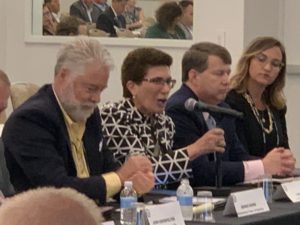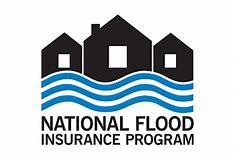NFIP expires Wednesday
There are several important flood insurance stories to report this week. A private flood insurance model act was passed over this weekend, Congress is prepared to extend the National Flood Insurance Program for a full year, and there’s growing support for a mandatory federal flood risk disclosure requirement on home sales.
We’re happy to report that the National Council of Insurance Legislators (NCOIL) has preliminarily passed the “Private Primary Residential Flood Insurance Model Act.” As of this writing it is expected that NCOIL’s Executive Committee will approve it, allowing states to consider adoption through their individual legislatures. It’s based on Florida’s legislation that has proven to be very successful in promoting expansion of the private market here, as a necessary alternative and complement to the National Flood Insurance Program (NFIP). In the five years since our law passed, Florida consumers looking for available and competitively priced flood coverage can now choose from a growing list of 37 private insurance companies. The NCOIL Act was sponsored by Florida state Representative David Santiago (R-Deltona) and North Carolina state Senator Vickie Sawyer (R-Mooresville), an insurance agent. I have traveled to NCOIL meetings for the past two years to help hammer out a version of the Act that provides necessary consumer education, as we’ve chronicled in this newsletter.

Lisa Miller presents before the NCOIL Special Committee on Natural Disaster Recovery, July 11,2019
Highlights of the Model include: utilizing either a “use and file” or “file and use” rate filing system; insurers attesting that rates are based on actuarial data, methodologies, standards, and guidelines relating to flood that are not excessive, inadequate, or unfairly discriminatory; and that filing requirements for private flood are not greater than those for other property lines of insurance.
The Model also requires important disclosures to be made to consumers such as: informing non-NFIP customers of the existence of the NFIP before placing their application with private flood insurance; and informing all consumers, including those currently covered under the NFIP, that NFIP coverage may be provided at a subsidized rate and that the full- risk rate for flood insurance may apply to the property if the applicant later seeks to reinstate coverage under the program.
The Model also sets forth that a state’s diligent effort law shall not apply to flood coverage under an insurance policy issued by an eligible surplus lines insurer unless and until the Commissioner certifies that the admitted private flood insurance market is adequate. Also, writing private flood insurance does not constitute participation in the property insurance market for purposes of determining participation in the state’s residual market program.
Overall, this is a much-needed win for consumers and will provide a streamlined way for other states to create a vibrant private flood market, just as Florida has. We congratulate Senator Sawyer and Representative Santiago for their hard work in crafting and shepherding this final model legislation.
 In other flood insurance news, the U.S. House of Representatives has passed a measure to extend the NFIP through September 30, 2021, as part of a bill to fund the federal government through December 11. It’s now in the Senate for consideration. The NFIP is set to expire this Wednesday.
In other flood insurance news, the U.S. House of Representatives has passed a measure to extend the NFIP through September 30, 2021, as part of a bill to fund the federal government through December 11. It’s now in the Senate for consideration. The NFIP is set to expire this Wednesday.
Meanwhile, the effort to create a federal real estate flood risk disclosure requirement when selling a home is gaining steam. More than 130 groups across the country, including the Florida-based Federal Association for Insurance Reform, have sent a letter to Congress urging federal legislation. Disclosure is currently required only for properties in high-risk flood zones applying for a federally-backed mortgage.
LMA Newsletter of 9-28-20

